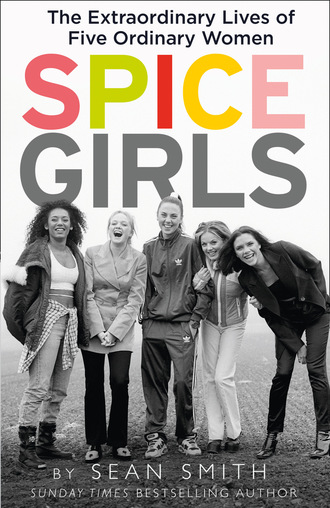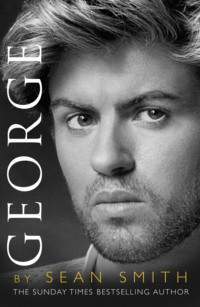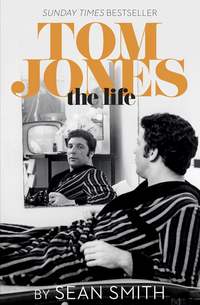
Полная версия
Spice Girls
She was still very much a dancer, never having bothered much with singing, although she started having some lessons to broaden her chances of landing better roles. She danced on The Bonnie Langford Show and on Keith and Orville’s Quack Chat Show, starring the popular ventriloquist and his green baby duck.
Her friend Rebecca had moved to London and Melanie was feeling constrained by Leeds. She was hired for another summer season in Blackpool, this time on The Billy Pearce Laughter Show at the Grand Theatre. Billy, the son of Melanie’s old dance teacher, was one of the most popular old-school entertainers in the north of England.
This time she would be away from home for four months and so, reluctantly, decided to split up with Steve. She opted for a clean break rather than keep things dragging on when she had ambitions to see the world and be a star – or, at least, a headliner in Blackpool. She did not want to settle for a cosy, settled life in Leeds.
Melanie was very fond of Steven and is nice about him in her memoirs, but she acknowledged that his life took a few wrong turns after his football career was wrecked by injury. He was sent to prison for nine months in 2002. Now working as a decorator, he had been convicted of affray after attacking two men in the street with a machete.
In Blackpool, Melanie enjoyed her new freedom. She was more independent than she had been during her first summer there and enjoyed dating as a single woman, as well as acting as understudy to her show’s female star, Claire Cattini. As far as Melanie was concerned, Claire was the epitome of a big star and a role model for the teenager from Leeds, even though she was only a couple of years older.
Melanie fell for another sportsman – this time a professional snooker player from Iceland called Fjölnir Thorgeirsson. Fjöl (pronounced Fee-ol) was very Nordic looking – tall, blond and well built. Melanie fancied him as soon as she saw him in a café on the promenade near the Norbreck Castle Hotel where he was competing in a number of qualifying tournaments for the big professional events.
Blackpool had become an important centre for snooker. The future world champion Ronnie O’Sullivan won an amazing seventy-four out of seventy-six matches at the Norbreck in 1992.
Fjöl wasn’t as successful but he did win through to the European Open held in Antwerp in September. He had a walkover in Round 2 and lost in the next. Melanie knew nothing about snooker but she came to watch him whenever she could get away. She enjoyed a summer of love in a boy-meets-girl sort of way. The chances for any future relationship seemed slim when Fjöl returned to Iceland and promptly suffered a serious motorbike accident, which meant he could not travel.
In fact, it was Melanie who hopped on a plane, as a dancer in a troupe entertaining the armed forces in the Falkland Islands, Bosnia and Northern Ireland. Her last show business job before her life-changing audition was in Lewisham. She had one line in the pantomime Jack and the Beanstalk starring Saracen from the hit TV series Gladiators – he eventually became a fire-fighter. Her heart wasn’t in it and she was sacked for skipping rehearsals, so it was back to Leeds and scouring the ads again.
Melanie had a habit of landing on her feet but her career to date seemed to be one step forward and one step back. She was still just eighteen but she badly needed something to happen.
2
Casting the Net
Imagine you were casting a sit-com. That was what Chris Herbert did. He wanted characters who would appeal to everyone. The series Friends wouldn’t start until later in 1994 but his idea of throwing together a group of young people with different personalities, characteristics and quirks was very similar to the thinking behind the classic comedy.
He wanted to cover all bases: ‘I approached it as if I was a casting director, finding characters that appealed to every colour in the rainbow – finding a gang of girls everyone could relate to. We were looking to create a lifestyle act.’
In the early nineties there was no The X Factor, The Voice or Britain’s Got Talent. The new millennium celebrations would come and go before Pop Idol heralded a new era of Saturday night TV in 2001. There was no quick fix to becoming a pop star. None of the young women who became the Spice Girls was likely to thrive in those competitions.
The era of the Spice Girls was closer to Opportunity Knocks than one of the new reality talent shows. The old favourite, originally hosted by Hughie Green, left our screens for good in 1990.
Instead, young hopefuls would rush to buy the Stage newspaper every week. Chris Herbert, too, would go to auditions, not to grab a spot on a cruise ship but to hand out flyers about his new group and see for himself the sort of personalities who were out there seeking work.
He decided not to limit his search. He went to pubs, clubs, open-mic nights, dance studios – anywhere he could get his message out: ‘My number-one focus wasn’t looking for singers. I was looking for young girls seeking opportunities within entertainment. I was trying to cast the net as wide as possible.’ He even went to Butlins and Blackpool in his search for five stars. He was unlucky not to have come across Melanie before the big audition day.
Chris might have been a young man, filled with enthusiasm and energy for a great new idea, but he wasn’t a novice in the music business. He had grown up in that world and was at ease within it, well used to coming home from school and finding pop stars sitting on the sofa enjoying a cuppa.
His father, Bob Herbert, was a millionaire accountant, drove a Rolls-Royce and had a penchant for wearing white suits. Geri Halliwell memorably described him as looking like an extra from Miami Vice, the American cop show from the eighties that perfectly captured an era obsessed with designer fashion.
More pertinently from the point of view of the future Spice Girls, he had experience of nurturing young talent. He spotted the potential of two of his son’s teenage friends at the Collingwood College in Camberley, Surrey. They were twin brothers, Matt and Luke Goss. At the time they were only fifteen but Bob could see they had the looks to engage a strong female following.
Bob was of the music school that was always seeking to copy a successful formula. He saw the twins as a late eighties version of the Bay City Rollers, the teen heartthrobs of the previous decade. When the brothers formed a band called Gloss, with young bassist Craig Logan (Goss with an L for Logan), Bob stepped in to offer them advice and, more importantly, space to rehearse in his summerhouse. He helped to plot their futures, introduced them to songwriters and financed their demo tapes but, because of their age, could not sign them to a binding legal contract until they were eighteen. When they came of age they were snapped up by Tom Watkins, former manager of the Pet Shop Boys, who secured them a deal with CBS.
The whole nightmare sequence of events would come back to haunt Bob with the Spice Girls. Under the new name of Bros, the boys released their first single, ironically titled ‘I Owe You Nothing’, which, when re-released in 1988, would be their only UK number one. At this time, a very large poster of Matt Goss was adorning the bedroom wall of an ambitious teenager called Victoria Adams.
Undaunted, Bob decided to have another go at finding an all-conquering band. After his son left college, they went into partnership, forming a management company called Heart, with offices in the Surrey town of Lightwater. Bob was keen to develop a project for his son to take on but, like all good accountants, he preferred to find someone else to absorb the financial risk. He immediately thought of his old music compadre, Chic Murphy.
Tall and silver-haired, Chic had a tiny cross tattooed on his earlobe and spoke in an EastEnders Cockney accent, but he frequented the upmarket Surrey haunts more usually associated with stockbrokers and golfers. Chris Herbert describes Chic as ‘old school’, which in music-business terms means he played it tough and preferred an environment in which the artists had very little control over their destiny.
He had made his first fortune importing big American cars into the UK. Subsequently, he had seen the business possibilities of bringing US pop acts across the Atlantic. In the eighties he signed up chart regulars like the Drifters, who were plying their trade in Las Vegas, and brought them over to the blossoming cabaret club scene where venues like Caesar’s Palace in Dunstable or Blazers in Windsor could pack in a thousand people a night. It was very lucrative.
From the point of view of the future Spice Girls, his most important involvement was with the Three Degrees, the popular UK girl group of the seventies. The trio, modelled more or less on the Supremes, were originally part of the Philadelphia stable, a rival of Motown in the US. They had their biggest hit in the UK, however, in 1974 topping the charts with the disco favourite ‘When Will I See You Again’ before Melanie Brown and Emma Bunton were born.
The public profile of the Three Degrees increased greatly when the media decided they were the favourite group of Prince Charles. This might not have done wonders for their musical credibility but took them off the pages of NME and Melody Maker and into the columns of the national newspapers. They became much more famous. Prince Charles invited them to perform at his thirtieth birthday party at Buckingham Palace in 1978, and they were subsequently guests at his wedding to Lady Diana Spencer three years later. It would not be the last time the Prince gave an all-girl group the oxygen of priceless publicity.
By the end of the seventies the Three Degrees were moving inevitably towards the cabaret circuit. They were still very popular, though – the sort of act that always gets work – and throughout the eighties Chic Murphy had been a familiar figure at their gigs. Bob Herbert, who did all the accounts for the nightclubs, became part of the group’s management team and forged a long-standing alliance with Chic.
If Bob and Chic had decided things, the new band would have been the Spice Boys. The initial conversation in the offices of Heart Management was about putting a boy band together. In late 1993 Take That were everywhere, with three number-one singles in a row and the platinum-selling album Everything Changes. The entire music world was looking to jump on the bandwagon of their popularity.
Fortunately, for five ambitious young women, Chris Herbert had a better idea: ‘A boy band seemed like the obvious route into the market but I wasn’t that keen on it because I thought we were sort of late to the party. There were loads of them.’ As well as Take That, there was East 17, Bad Boys Inc and Worlds Apart, with the prospect of another arriving any minute, like a double-decker bus in Piccadilly. Chris explained, ‘My feeling was that boy bands of the time were only really appealing to 50 per cent of the market – a female audience. I wanted to put a girl band together that was a bit feisty, sexy and sassy so that they could appeal to both a female and male audience. The girls could relate to them and aspire to be them. The guys would just adore them.’
Bob and, in particular, Chic took a lot of convincing that a girl band was the way forward. Chris observed, ‘They were kind of following the market and it just seemed fairly radical that we should be doing the absolute opposite of that.’ The first thing they wanted to know was the strength of the opposition. It was anything but strong. An all-girl group called Milan were signed to Polydor in 1992 and looked promising for a couple of years, featuring a teenage Martine McCutcheon before she found stardom playing Tiffany in EastEnders. They opened for East 17 on tour but a few singles failed to set the charts alight and they folded in 1994.
Eternal represented more serious opposition. They had already achieved a couple of top-ten singles and their first album Always and Forever peaked at number two. Chris, however, did not see them as direct competition. Despite being very glamorous and including the lads-mag favourite Louise Nurding, they were basically a soulful vocal group specialising in R&B. ‘They were pretty slick and smooth,’ observed Chris. ‘I felt we needed more character.’
Eventually he got his way. ‘My dad was probably the first to come round to the idea, Chic less so. His approach was “Well, OK, go out and see what you can find and we’ll reassess it.” Actually, Chic was like that all the way through. He kind of let me out on a rein to go and do it and then was slightly cynical but I suppose he was prepared to see what turned up.’
At first, it seemed as if it was going to be a hard slog – until he paid £174 to place his own advertisement in the Stage. The now famous ad that would eventually lead to the formation of the Spice Girls appeared on 24 February 1994. It read:
R.U. 18–23 WITH THE ABILITY
TO SING/DANCE
R.U. STREETWISE, OUTGOING,
AMBITIOUS & DEDICATED
HEART MANAGEMENT LTD
are a widely successful
Music Industry Management Consortium
currently forming a choreographed, Singing/Dancing,
all Female Pop Act for a Record Recording Deal.
OPEN AUDITION
DANCE WORKS, 16 Balderton Street,
FRIDAY 4TH MARCH
11.00 a.m.–5.30 p.m.
PLEASE BRING SHEET MUSIC
OR BACKING CASSETTE
On the day, more than four hundred young hopefuls queued on the stairs of the studio off Oxford Street to impress the ‘panel’, consisting of Bob, Chris and his fiancée Shelley, who was a stylist. The girls were divided into groups of ten and put through their dancing paces to the sound of Eternal’s début hit ‘Stay’. The numbers were reduced to fifty before they were asked to do an individual song.
The panel kept rudimentary scorecards that would judge the girls on four categories: singing, dancing, looks and personality. It was the best and quickest way to whittle down the possibles into a short list. Melanie Brown performed her now regular audition song, ‘The Greatest Love of All’ by Whitney Houston. Chris gave her eight out of ten across the board.
She obviously stood out. It wasn’t just that she fitted his vision for the make-up of the group. She had a personality and charisma that shone. Chris recalled, ‘For me, she was the one who walked in and seemed the full package. She was good but she also just had the look. Her image was on point. She could sing and she had a big personality. On the day, I immediately thought, We have found one.’
Melanie had enjoyed the experience so much that she decided to skip the afternoon audition for the cruise ship, preferring to chat to some of the other girls before making her way back to Victoria station to get the coach home. Chris had told her he would be in touch and Melanie was confident she’d got it. She was right.
3
Mein Herr
Victoria Adams-Wood, as she was calling herself then, carried herself differently from the other hopefuls at the Danceworks audition. She was a curvy nineteen-year old, strikingly dressed all in black, with a crop-top showing off her very tanned midriff.
On his mood board back at the office, Chris Herbert had been toying with the idea that one of the group should appeal to the more mature man. He was looking for a young woman who might turn the head of a male consumer with a dash of discernment. You don’t need to be posh to have a touch of class and that was the quality Chris was seeking.
Victoria came from a North London working-class background. Her dad Tony Adams, the son of a factory worker, had been brought up in a two-bedroom house in Edmonton that had no bathroom, an outside toilet and no heating. These were the austere years that followed the end of the Second World War when money was rationed just as much as food had been during the conflict.
In 1957 when Tony was eleven, Prime Minister Harold Macmillan famously said, ‘Most of our people have never had it so good,’ which was small consolation for the youngster hanging around outside the pub waiting for his father to finish his pint. Sometimes he would be pressed into collecting cigarette butts from the overflowing ashtrays for his dad to smoke. Truly, Edmonton was a place to aspire to leave in order to make something of yourself in the world – and that was what he did.
Despite its drawbacks, Edmonton then had a strong sense of community and families had pride in their modest surroundings. The planners of sixties Britain have much to answer for in retrospect, bulldozing away those strong neighbourhood bonds in favour of anonymous tower blocks. Families there pulled together and survived together. Tony absorbed that spirit and passed it on to his eldest daughter.
Tony left school to train as an electrician but dreamt of being a pop star. He was unlucky. He shone as the lead singer in two groups, first in the Calettos and then in the Soniks, which was mainly a covers band. The biggest gig he played was at the famous Lyceum Ballroom on the Strand in London.
He caught the attention of the legendary impresario and manager Joe Meek, who had been responsible for one of the biggest hits of the sixties, ‘Telstar’ by the Tornados, the first US number one by a British group. Joe signed Tony to a contract but, unknown to many in the music business, his life was falling apart because of money problems and blackmail relating to his homosexuality. In February 1967 he murdered his landlady, Violet Shenton, then killed himself with a shotgun.
The difficulty for Tony, who had just recorded his first demo, was that he was under contract at the time and subsequent legal red tape prevented him from recording for five years. This huge disappointment meant that he was always extremely careful when it came to business and, in particular, contracts – a trait inherited by his daughter that would prove to be vital in the progress of the future Spice Girls.
Tony picked up his trade again, working as a rep for an electrical company. He already had ambitions to start his own company, supported by his girlfriend Jackie Cannon, a trainee hairdresser from Tottenham, who soon gave that up to join an insurance company in central London.
Jackie’s father, George, was a stevedore in the docks, loading and unloading ships. He worked all hours to improve his family’s life, an ethic that Tony and Jackie followed over the years, in much the same way as Melanie Brown’s parents. Tony and Jackie married in 1970 but waited four years to start a family, building a better future by moving out of London before their daughter Victoria Caroline was born on 17 April 1974 in the Princess Alexandra Hospital in Harlow, which technically made her an Essex girl.
In 1977, when Victoria was three, Tony bought the Old School House in Goff’s Oak, Hertfordshire. The place needed a lot of work but he had the skills and the contacts in the building trade to do it up himself. But, perhaps more importantly, it had a large garage, which would become the hub of his new electrical-supply company.
Goff’s Oak liked to call itself a village but was quite suburban, if full of people doing rather well for themselves. One ex-teacher at the local school observed witheringly, ‘Wait outside the school gates on any given day and you’d wish you had shares in a fake-tan company and one making leather trousers. They are women with too much time on their hands. They have nothing better to do than shop and get their hair and nails done.’
The media would always make much of Victoria being dropped off at school in her dad’s Rolls-Royce. That was much later. For now, she was driven in her father’s old Hillman, which also doubled as his delivery van. Victoria was a quiet little girl, who struggled with a lack of confidence, particularly in English, and took extra lessons in reading, comprehension and spelling. She was a million miles away from the outspoken woman with the ready wit she would later become.
Tony loved listening to the Beatles and Stevie Wonder, and would dance his little girl around the house to the sound of the great Motown star’s hit ‘Sir Duke’, which Jackie said gave her daughter her love of performing. One teacher, Sue Bailey, recalled, ‘She always loved acting and enjoyed our drama lessons. She liked to sing and dance. She shone one year as Frosty the Snowman. She was a very sweet girl.’
Victoria was inspired by the iconic film Fame. She envied the energy and the exuberance of the students skipping down the corridors of the High School for the Performing Arts in New York. She wanted to be Coco, the multi-talented character played so memorably by Irene Cara. It’s easy to imagine the Spice Girls dancing on the desks and singing in the streets with the rest of the students.
She stuck a poster on her bedroom wall of the dashingly handsome Gene Anthony Ray, who played Leroy in the film and the subsequent TV spin-off. Ironically, Gene became a victim of his own fame, sinking into a life of drink and drugs and dying young, at forty-one.
Victoria was obsessed by the TV show, taping every episode so that she could learn all the songs and the dance routines. She persuaded her mum to take her to see the Kids from Fame on tour and subsequently badgered her into finding a ‘Fame’ school near Goff’s Oak. They couldn’t find an exact match but the Jason Theatre School a few miles up the road in Broxbourne seemed the best option for a nine-year-old.
Rather like the Jean Pearce School in Leeds, the Jason had been running for more than thirty years, founded in North London by greatly respected local dance teacher Joy Spriggs. From the first class, Joy identified Victoria as one of her most eager students, prepared to work her tap shoes off to improve: ‘At the time, all the children wanted to do jazz dancing, with the ankle warmers and the leotards and the colourful catsuits. There was Hot Gossip on television and they wanted to copy that. It was the style of the time.’
Victoria may not have been the most talented dancer ever to grace the Jason Theatre School but she made a dramatic improvement through hard work, determination and old-fashioned practice. Quite simply, the harder Victoria worked, the better she became. Joy observed, ‘She had a certain natural ability and we just channelled it in the right way. Victoria would shine because she was a very pretty little girl, with big dark brown eyes and long dark curly hair, but she was a little bit self-conscious to start with. She didn’t hold back but she wasn’t quite as confident as some of the others. We had to build that confidence with her.’
Her self-belief was boosted when the Jason Theatre School linked up with the local amateur dramatic society for productions of Hello Dolly, Sleeping Beauty and The Wizard of Oz, in which she played a Munchkin. Her ambition was also fuelled by trips to the West End to see the most popular musicals of the eighties – Cats, Les Misérables, Starlight Express and Miss Saigon.
Week after week, dancing provided a welcome escape from real school for Victoria. After the relatively quiet waters of primary school, her parents decided to send her to St Mary’s High School in Cheshunt where she stood out like a beacon, unhappily.
By this time Tony’s business was thriving and the family had plenty of money. The Old School House was now one of the grandest homes in the village, with a swimming pool in the back garden and the Rolls-Royce, with its personalised number plate, in the driveway. It was his pride and joy, although Victoria maintained she hated it.
She had to say that because it might have alienated a million potential Spice Girls fans to hear tales of Daddy dropping her off in the Rolls-Royce. Victoria has always been careful not to describe any days that began with a ride in the Roller and ended with a dip in the pool.






